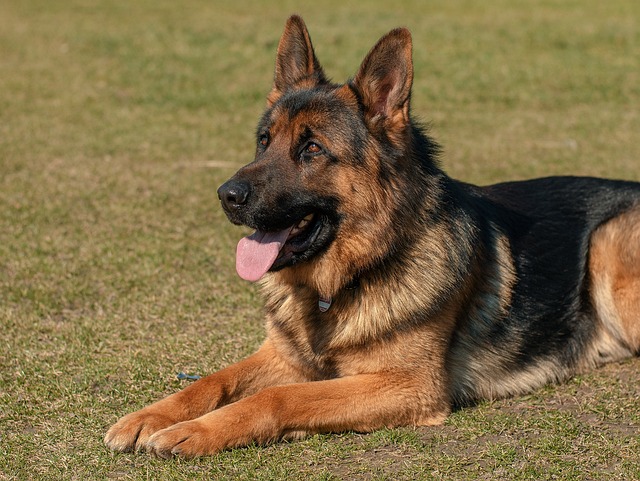Introduction
As our loyal companions age, it’s essential to understand the intricacies of caring for an old German Shepherd dog. With their rich history and distinct traits, these senior dogs deserve the utmost love and attention in their twilight years.
History and Origin of the Old German Shepherd Dog
The roots of the German Shepherd breed can be traced back to the 19th century, where they were initially bred for herding sheep. Over time, their intelligence and versatility led to their deployment in various roles, including police and military work.
Characteristics and Physical Appearance
Size and Weight
Senior German Shepherds typically exhibit a sturdy build, with males weighing between 65 to 90 pounds and females between 50 to 70 pounds. Their size may vary slightly due to genetic factors and overall health.
Coat and Colors
The old German Shepherd’s double coat is typically dense, with a thick undercoat and a longer, coarser outer coat. Common colors include tan, black, and a mix of both, with variations in markings and patterns.
Temperament and Behavior of Senior German Shepherds
Loyalty and Obedience
Known for their unwavering loyalty, older German Shepherds maintain their protective instincts, often displaying a strong bond with their human families. Their obedience may slightly diminish with age, emphasizing the need for patient and consistent training.
Health Concerns in Old Age
Senior German Shepherds are prone to specific health issues, including arthritis, hip dysplasia, and deteriorating sensory functions. Regular check-ups are crucial to address these concerns effectively.
Grooming and Care Tips for Aging German Shepherds
As their coat loses its youthful luster, regular grooming sessions become vital to prevent matting and minimize shedding. Frequent brushing and occasional baths help maintain their hygiene and skin health.
Dietary Needs for Senior German Shepherds
A balanced diet rich in lean proteins, healthy fats, and essential nutrients supports the overall well-being of aging German Shepherds. Consultation with a veterinarian can help determine a suitable dietary plan that caters to their specific health requirements.
Exercise Requirements for Aging German Shepherds
Specific exercise routines, such as soft walks and light play sessions, to convey help to maintain muscle strength and joint flexibility. It’s necessary to balance physical activity and adequate rest to avoid overexertion.
Common Health Issues in Old German Shepherds
Arthritis and Joint Problems
The onset of arthritis is a common concern among senior German Shepherds, often leading to mobility challenges and discomfort. Providing orthopedic support and appropriate medication can significantly enhance their quality of life.
Vision and Hearing Loss
With advancing age, German Shepherds may experience a decline in their sensory functions. Regular evaluations and adjustments in their environment can help them adapt to these changes more smoothly.
Cognitive Dysfunction
Cognitive decline can manifest in senior German Shepherds, leading to disorientation and behavioral changes. Mental stimulation through interactive toys and puzzles can help slow down this process and keep their minds active.
Creating a Comfortable Environment for Aging German Shepherds
Establishing a cozy and accessible living space contributes to the emotional well-being of senior German Shepherds. Soft bedding, easy access to water and food, and a warm environment help them feel secure and relaxed.
Training Techniques for Old German Shepherds
Using positive reinforcement and gentle guidance, training sessions can help reinforce good behavior and mental stimulation. Patience and understanding are key elements in fostering a positive learning experience for aging German Shepherds.
Socialization for Senior German Shepherds
Balanced exposure to new environments and interactions with other dogs and people can prevent the onset of social anxiety in senior German Shepherds. Controlled socialization activities promote mental engagement and emotional stability.
When to Consider Euthanasia for Old German Shepherds
Evaluating the quality of life of an aging German Shepherd is an emotionally challenging but necessary responsibility. Consulting with a trusted veterinarian can provide valuable insights into the appropriate time to consider humane euthanasia for a suffering companion.
Coping with the Loss of a Senior German Shepherd
The loss of a beloved German Shepherd can be an overwhelming experience. Engaging in grief counseling, memorializing their legacy, and cherishing fond memories can aid in the healing process, allowing for a meaningful tribute to their unwavering companionship.
Tips for Adopting or Fostering an Old German Shepherd
Considering the adoption or fostering of an old German Shepherd is a noble and compassionate choice. Understanding their unique needs, providing a nurturing environment, and offering unconditional love can create a profound bond with a senior dog seeking a loving home.
Conclusion
Embracing the journey of caring for an old German Shepherd requires patience, empathy, and a deep sense of devotion. By addressing their physical, emotional, and medical needs with diligence and compassion, we honor their enduring legacy and enrich our lives through their unwavering companionship.
FAQs
- How long do German Shepherds typically live?
German Shepherds generally live between 9 to 13 years, although this can vary depending on individual health and genetics.
- Are old German Shepherds still trainable?
While older German Shepherds might take longer to grasp new commands, they can still benefit from training sessions that focus on reinforcement and mental stimulation.
- How can I help my aging German Shepherd manage joint pain?
Consulting with a veterinarian for appropriate pain management solutions, including supplements and medications, can significantly alleviate joint discomfort in senior German Shepherds.
- What are some signs of cognitive decline in aging German Shepherds?
Behavioral changes, disorientation, and decreased responsiveness to familiar commands can indicate the onset of cognitive dysfunction in senior German Shepherds.
- How can I support a grieving German Shepherd after the loss of a companion?
Providing extra love and attention, maintaining familiar routines, and engaging in interactive activities can help grieving German Shepherds cope with the loss of a companion and adjust to their new reality.
